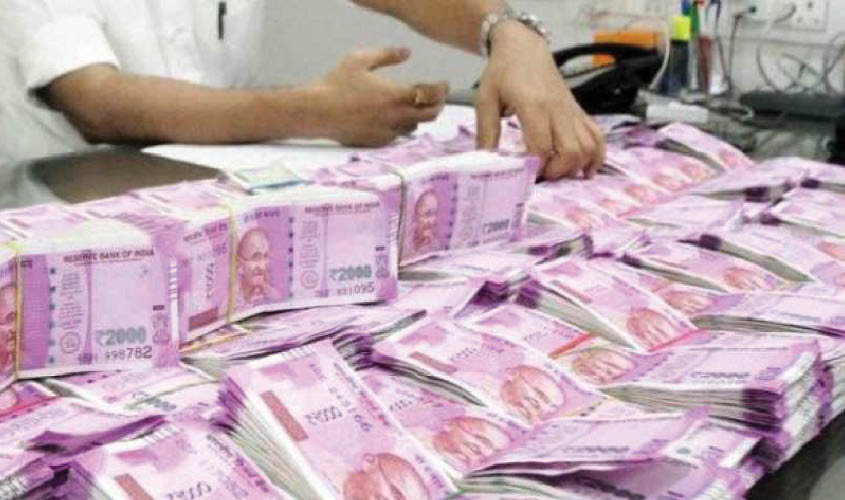The Centre’s fight against black money, though well-intentioned, seems to be lacking teeth as only 112 persons have been convicted under the Income Tax Act in the last three financial years, taking the overall conviction rate to a meagre 1.77%.
The Income Tax Department, which is responsible for taking action against black money, does it through searches, surveys, enquiries, assessment of income and filing of prosecution of complaints before criminal courts. However, the progress has been far from satisfactory as far as conviction rate is concerned.
According to the government’s own admission, only 552 cases were filed in 2015-16. This number increased to 1,252 in 2016-17 and 4,527 in 2017-18. However, only 28 persons (5%) were convicted in 2015-16, which came further down to 16 (1.28%) in 2016-17. In 2017-18, however, 68 persons (1.5%) were convicted. In these three years, the authorities could seize assets worth only Rs 3,179 crore.
The demonetisation move of 2016, which was also intended to curb the menace of black money, was misused by many. However, agencies failed to take action against the offenders. While the Enforcement Directorate (ED) filed 37 cases in demonetisation related irregularities, the CBI registered only 35 cases against those who misused demonetisation.
According to government figures, during the period between November 2016 and March 2017, the Income Tax Department conducted searches in 900 groups, involved in various activities and businesses, leading to a seizure of Rs 900 crore, including a cash seizure of Rs 636 crore.
Sources said a dedicated campaign was launched to take focused action against non-filers who had deposited large volume of cash during the demonetisation period. Notices were sent to about 3.04 lakh persons who had deposited cash of more than Rs 10 lakh, but did not file their return of income till the due date of filing. As a result, returns were filed by 2.09 lakh identified non-filers who paid a self-assessment tax of Rs 6,416 crore.
The Enforcement Directorate, on the other hand, registered 37 cases under the provisions of Prevention of Money Laundering Act (PMLA) in connection with the irregularities relating to demonetisation. Investigations in these cases resulted in attachment of properties worth Rs 144 crore and seizure of gold weighing 7.5 kg. Subsequently, 18 persons were arrested in this regard.
Soon after coming to power in 2014, Prime Minister Narendra Modi had constituted a Special Investigation Team (SIT) on black money, headed by Justice (Retired) M.B. Shah. Investigations into cases involving black money or undisclosed income, particularly stashed abroad, are extensively monitored by it.
Recognising the limitations of the Income Tax Act, 1961, in dealing with black money stashed abroad, the Modi government enacted a more stringent law, Black Money (Undisclosed Foreign Income and Assets) and Imposition of Tax Act, which came into force from 1 July 2015.
The new law provides for separate taxation of undisclosed foreign income and assets. The new legislation deals with the cases of overseas illegal assets, which till recently were probed under the 1961 Act. This legislation has provisions for a steep 120% tax and penalty on offenders. Besides, the Centre also initiated other measures for curbing the black money stashed abroad. Now India can receive financial account information of its residents in other countries. India has also entered into information sharing agreement with the US. The government has engaged with foreign governments under the Double Taxation Avoidance Agreements (DTAA) under SAARC agreement. Also, India and Switzerland have in place DTAA for sharing of financial account information, which is effective from 1 January 2018 with first transmission in 2019. Accordingly, India will get the information of financial accounts being held by the Indian residents in Switzerland for 2018 and subsequent years, on an automatic basis.

